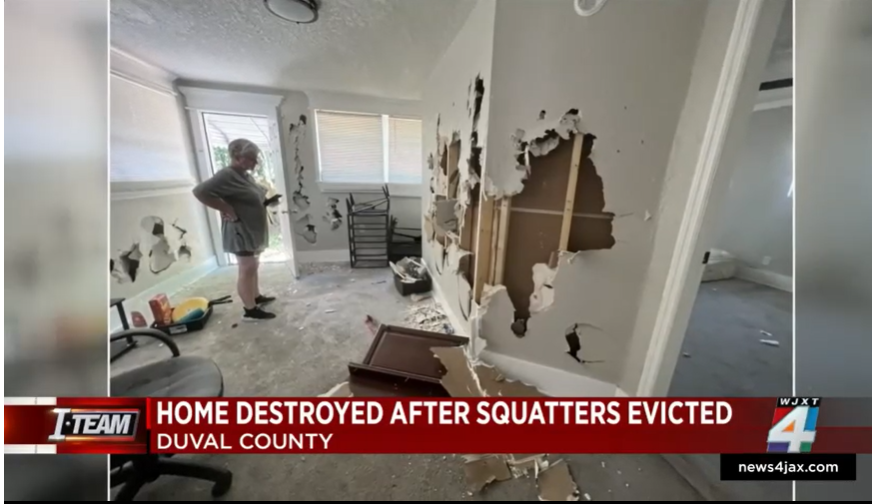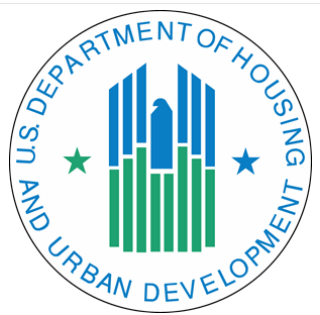The Fair Housing Act
The Fair Housing Act, 42 U.S.C. 3601 et seq., prohibits discrimination by direct providers of housing, such as landlords and real estate companies as well as other entities, such as municipalities, banks or other lending institutions and homeowners insurance companies whose discriminatory practices make housing unavailable to persons because of:
In cases involving discrimination in mortgage loans or home improvement loans, the Department may file suit under both the Fair Housing Act and the Equal Credit Opportunity Act. The Department brings cases where there is evidence of a pattern or practice of discrimination or where a denial of rights to a group of persons raises an issue of general public importance. Where force or threat of force is used to deny or interfere with fair housing rights, the Department of Justice may institute criminal proceedings. The Fair Housing Act also provides procedures for handling individual complaints of discrimination. Individuals who believe that they have been victims of an illegal housing practice, may file a complaint with the Department of Housing and Urban Development [HUD] or file their own lawsuit in federal or state court. The Department of Justice brings suits on behalf of individuals based on referrals from HUD.
Discrimination in Housing Based Upon Race or Color
One of the central objectives of the Fair Housing Act, when Congress enacted it in 1968, was to prohibit race discrimination in sales and rentals of housing. Nevertheless, more than 30 years later, race discrimination in housing continues to be a problem. The majority of the Justice Department's pattern or practice cases involve claims of race discrimination. Sometimes, housing providers try to disguise their discrimination by giving false information about availability of housing, either saying that nothing was available or steering homeseekers to certain areas based on race. Individuals who receive such false information or misdirection may have no knowledge that they have been victims of discrimination. The Department of Justice has brought many cases alleging this kind of discrimination based on race or color. In addition, the Department's Fair Housing Testing Program seeks to uncover this kind of hidden discrimination and hold those responsible accountable. Most of the mortgage lending cases brought by the Department under the Fair Housing Act and Equal Credit Opportunity Act have alleged discrimination based on race or color. Some of the Department's cases have also alleged that municipalities and other local government entities violated the Fair Housing Act when they denied permits or zoning changes for housing developments, or relegated them to predominantly minority neighborhoods, because the prospective residents were expected to be predominantly African-Americans.
Discrimination in Housing Based Upon Religion
The Fair Housing Act prohibits discrimination in housing based upon religion. This prohibition covers instances of overt discrimination against members of a particular religion as well less direct actions, such as zoning ordinances designed to limit the use of private homes as a places of worship. The number of cases filed since 1968 alleging religious discrimination is small in comparison to some of the other prohibited bases, such as race or national origin. The Act does contain a limited exception that allows non-commercial housing operated by a religious organization to reserve such housing to persons of the same religion.
Discrimination in Housing Based Upon Sex, Including Sexual Harassment
The Fair Housing Act makes it unlawful to discriminate in housing on the basis of sex. In recent years, the Department's focus in this area has been to challenge sexual harassment in housing. Women, particularly those who are poor, and with limited housing options, often have little recourse but to tolerate the humiliation and degradation of sexual harassment or risk having their families and themselves removed from their homes. The Department's enforcement program is aimed at landlords who create an untenable living environment by demanding sexual favors from tenants or by creating a sexually hostile environment for them. In this manner we seek both to obtain relief for tenants who have been treated unfairly by a landlord because of sex and also deter other potential abusers by making it clear that they cannot continue their conduct without facing repercussions. In addition, pricing discrimination in mortgage lending may also adversely affect women, particularly minority women. This type of discrimination is unlawful under both the Fair Housing Act and Equal Credit Opportunity Act.
Discrimination in Housing Based Upon National Origin
The Fair Housing Act prohibits discrimination based upon national origin. Such discrimination can be based either upon the country of an individual's birth or where his or her ancestors originated. Census data indicate that the Hispanic population is the fastest growing segment of our nation's population. The Justice Department has taken enforcement action against municipal governments that have tried to reduce or limit the number of Hispanic families that may live in their communities. We have sued lenders under both the Fair Housing Act and the Equal Credit Opportunity Act when they have imposed more stringent underwriting standards on home loans or made loans on less favorable terms for Hispanic borrowers. The Department has also sued lenders for discrimination against Native Americans. Other areas of the country have experienced an increasing diversity of national origin groups within their populations. This includes new immigrants from Southeastern Asia, such as the Hmong, the former Soviet Union, and other portions of Eastern Europe. We have taken action against private landlords who have discriminated against such individuals.
Discrimination in Housing Based Upon Familial Status
The Fair Housing Act, with some exceptions, prohibits discrimination in housing against families with children under 18. In addition to prohibiting an outright denial of housing to families with children, the Act also prevents housing providers from imposing any special requirements or conditions on tenants with custody of children. For example, landlords may not locate families with children in any single portion of a complex, place an unreasonable restriction on the total number of persons who may reside in a dwelling, or limit their access to recreational services provided to other tenants. In most instances, the amended Fair Housing Act prohibits a housing provider from refusing to rent or sell to families with children. However, some facilities may be designated as Housing for Older Persons (55 years of age). This type of housing, which meets the standards set forth in the Housing for Older Persons Act of 1995, may operate as "senior" housing. The Department of Housing and Urban Development (HUD) has published regulations and additional guidance detailing these statutory requirements.
Discrimination in Housing Based Upon Disability
The Fair Housing Act prohibits discrimination on the basis of disability in all types of housing transactions. The Act defines persons with a disability to mean those individuals with mental or physical impairments that substantially limit one or more major life activities. The term mental or physical impairment may include conditions such as blindness, hearing impairment, mobility impairment, HIV infection, mental retardation, alcoholism, drug addiction, chronic fatigue, learning disability, head injury, and mental illness. The term major life activity may include seeing, hearing, walking, breathing, performing manual tasks, caring for one's self, learning, speaking, or working. The Fair Housing Act also protects persons who have a record of such an impairment, or are regarded as having such an impairment. Current users of illegal controlled substances, persons convicted for illegal manufacture or distribution of a controlled substance, sex offenders, and juvenile offenders are not considered disabled under the Fair Housing Act, by virtue of that status. The Fair Housing Act affords no protections to individuals with or without disabilities who present a direct threat to the persons or property of others. Determining whether someone poses such a direct threat must be made on an individualized basis, however, and cannot be based on general assumptions or speculation about the nature of a disability. The Division's enforcement of the Fair Housing Act's protections for persons with disabilities has concentrated on two major areas. One is insuring that zoning and other regulations concerning land use are not employed to hinder the residential choices of these individuals, including unnecessarily restricting communal, or congregate, residential arrangements, such as group homes. The second area is insuring that newly constructed multifamily housing is built in accordance with the Fair Housing Act's accessibility requirements so that it is accessible to and usable by people with disabilities, and, in particular, those who use wheelchairs. There are other federal statutes that prohibit discrimination against individuals with disabilities, including the Americans with Disabilities Act, which is enforced by the Disability Rights Section of the Civil Rights Division.
Discrimination in Housing Based Upon Disability Group Homes
Some individuals with disabilities may live together in congregate living arrangements, often referred to as "group homes." The Fair Housing Act prohibits municipalities and other local government entities from making zoning or land use decisions or implementing land use policies that exclude or otherwise discriminate against individuals with disabilities. The Fair Housing Act makes it unlawful --
- To utilize land use policies or actions that treat groups of persons with disabilities less favorably than groups of non-disabled persons. An example would be an ordinance prohibiting housing for persons with disabilities or a specific type of disability, such as mental illness, from locating in a particular area, while allowing other groups of unrelated individuals to live together in that area.
- To take action against, or deny a permit, for a home because of the disability of individuals who live or would live there. An example would be denying a building permit for a home because it was intended to provide housing for persons with mental retardation.
- To refuse to make reasonable accommodations in land use and zoning policies and procedures where such accommodations may be necessary to afford persons or groups of persons with disabilities an equal opportunity to use and enjoy housing. What constitutes a reasonable accommodation is a case-by-case determination. Not all requested modifications of rules or policies are reasonable. If a requested modification imposes an undue financial or administrative burden on a local government, or if a modification creates a fundamental alteration in a local government's land use and zoning scheme, it is not a "reasonable" accommodation.
Discrimination in Housing Based Upon Disability -- Accessibility Features for New Construction
The Fair Housing Act defines discrimination in housing against persons with disabilities to include a failure "to design and construct" certain new multi-family dwellings so that they are accessible to and usable by persons with disabilities, and particularly people who use wheelchairs. The Act requires all newly constructed multi-family dwellings of four or more units intended for first occupancy after March 13, 1991, to have certain features: an accessible entrance on an accessible route, accessible common and public use areas, doors sufficiently wide to accommodate wheelchairs, accessible routes into and through each dwelling, light switches, electrical outlets, and thermostats in accessible location, reinforcements in bathroom walls to accommodate grab bar installations, and usable kitchens and bathrooms configured so that a wheelchair can maneuver about the space.
Developers, builders, owners, and architects responsible for the design or construction of new multi-family housing may be held liable under the Fair Housing Act if their buildings fail to meet these design requirements. The Department of Justice has brought many enforcement actions against those who failed to do so. Most of the cases have been resolved by consent decrees providing a variety of types of relief, including: retrofitting to bring inaccessible features into compliance where feasible and where it is not -- alternatives (monetary funds or other construction requirements) that will provide for making other housing units accessible; training on the accessibility requirements for those involved in the construction process; a mandate that all new housing projects comply with the accessibility requirements, and monetary relief for those injured by the violations. In addition, the Department has sought to promote accessibility through building codes.





Feedback, Questions, Opinion
We will get back to you as soon as possible.
Please try again later.




















